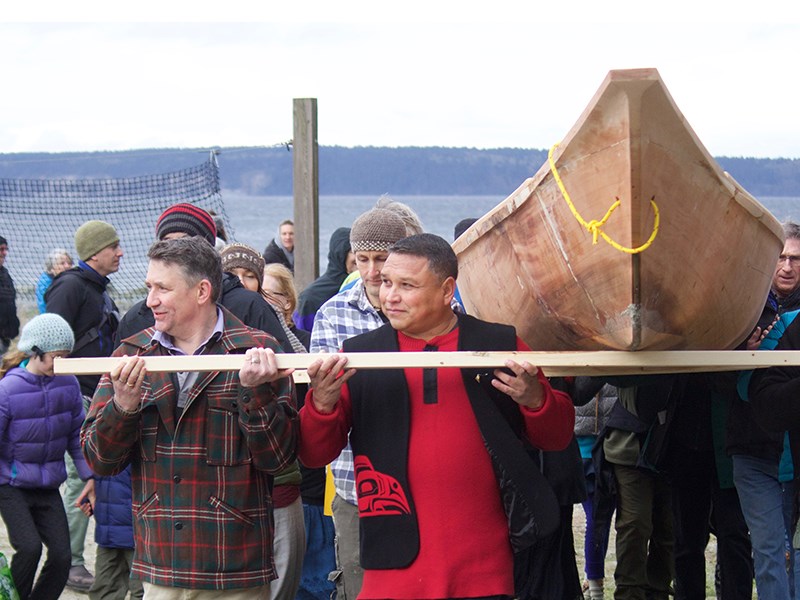Tla’amin Nation is moving ahead with plans for development ventures on its lands, including property within City of Powell River.
The biggest piece is approximately 300 acres of forested tract identified as treaty land on the city’s eastern boundary.
“It hasn’t been an urgent item for us, but now Tla’amin tells us they’re interested in talking about that, and perhaps other lands,” said city chief administrative officer Mac Fraser. “We’re quite interested in being at their table and talking in earnest.”
As Tla’amin marks its second anniversary of self-government on April 5, hegus Clint Williams said rewards and challenges include the ability to make plans internally, and “that's been a huge benefit to us as we start looking at some potential development.”
But in order to capitalize on development potential of its treaty lands within the city, Tla’amin requires consent.
Williams abruptly cancelled a recent meeting with city officials about agreements linked to Tla’amin land in Powell River.
“We requested a council-to-council meeting with the city council and our council, and we want to have those discussions council-to-council before we carry on with any of these other pieces of the relationship because these matters are very important to us,” said Williams.
As to just what those matters are, Williams would not enter into specific details other than to say there had to be to some service agreements made with the city and there is the matter of consent.
Under self-government, Tla’amin can roll land into treaty with municipal consent.
“The official word is we need the consent of the city,” said Williams. “The approval will happen on the provincial level but part of this process as identified in the final agreement states that we must have the consent of the city to make that official change.”
Tla’amin also privately owns a .08-acre property on Wharf Street and is the largest fee-simple landowner in the area with ownership and authority over 8,323 hectares of treaty land.
Williams declined to talk about details of the current state of the nation’s relationship with the city, other than to say, “we need to have some discussions on some matters that are very important to us as Tla'amin Nation.”
There has been talk between the two governments and PRSC Limited Partnership, a joint venture between the city and Tla’amin’s Tees'kwat Land Holdings with each entity holding a single share.
According to sources within the city and close to negotiations, Tla’amin and PRSC might be entertaining the idea of dissolving the holding company. Fraser and PRSC co-manager and city economic development manager Scott Randolph said they would not comment on the negotiations.
There is no friction in the relationship between Tla’amin and the city and the two neighbours continue to live in close partnership and harmony, according to Fraser.
The city recently began work on six recommendations to respond to calls to action in the Truth and Reconciliation Report, including repudiating concepts, bylaws and policies used to justify European sovereignty over indigenous peoples and lands; encouraging Powell River Historical Museum and Archives to continue its close working relationship to locate and provide records regarding the residential school system; and directing the sports hall of fame to include recognition of aboriginal athletes.
Appearing before committee of the whole on March 13, Fraser said one recommendation arising from the report would see the city consult with Tla’amin to determine how residents of Powell River can appropriately commemorate and honour people who died due to attending residential schools.
Fraser told the committee Tla’amin citizens were forced to attend a residential school in Sechelt but the city is unaware of any burial sites or information directly associated with the school.
“However, research shows an inordinate number of students died while attending the schools without respectful burials,” said Fraser, “or were sent home to die.”



